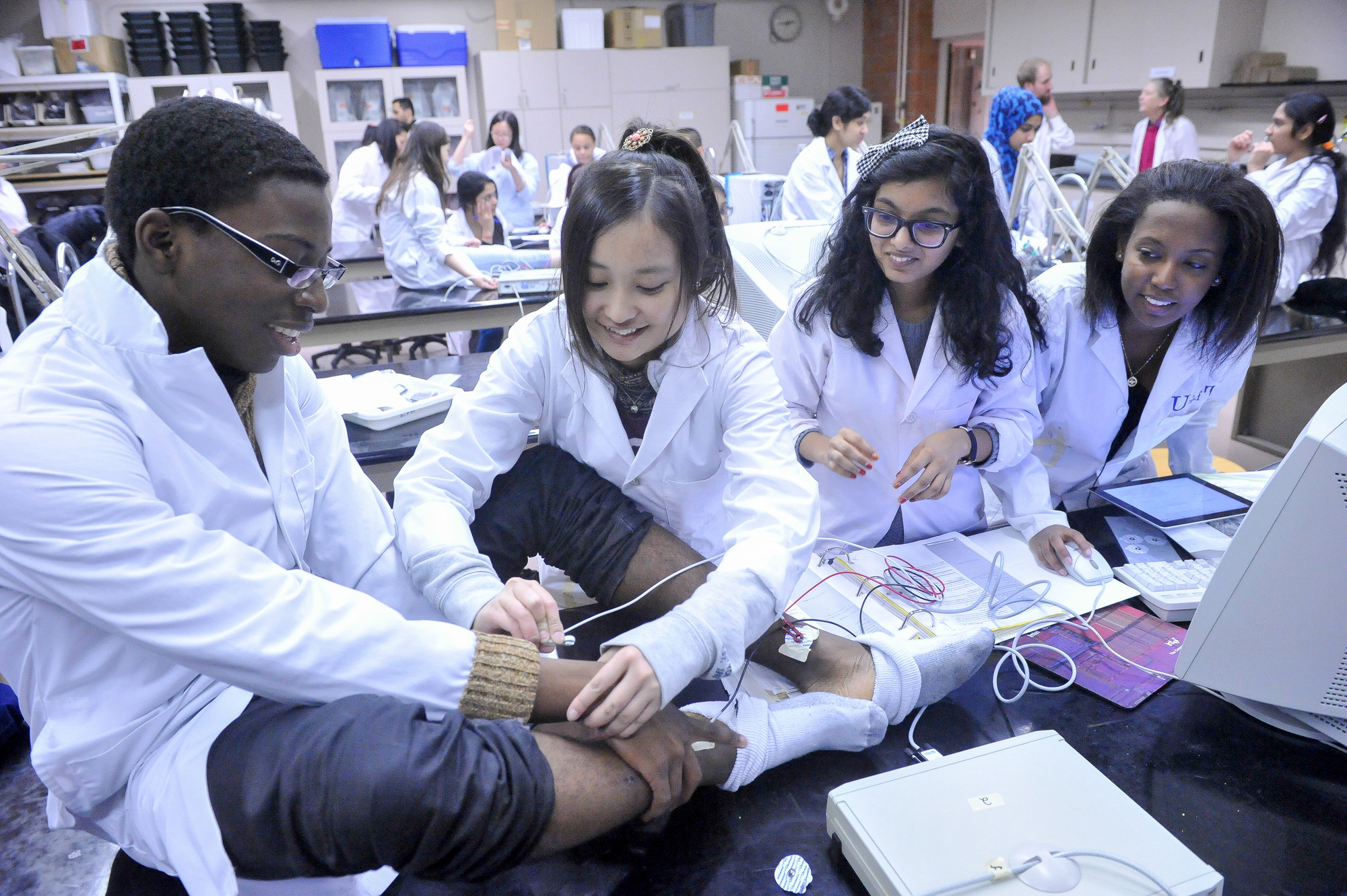
The B.Sc. in Physiology program is designed to provide students with a comprehensive understanding of the intricate functioning of the human body. Rooted in biology and medicine, the curriculum encompasses a range of subjects such as human anatomy, biochemistry, neurophysiology, and endocrinology. Through a combination of theoretical knowledge and practical applications, students gain insights into the physiological mechanisms that underlie various bodily functions. Core courses include Human Anatomy, Cell Biology, Biochemistry, and Systems Physiology, forming the backbone of the program. Laboratory sessions and hands-on experiments play a crucial role in reinforcing theoretical concepts, allowing students to explore and understand physiological phenomena in a practical context. The B.Sc. in Physiology program emphasizes the integration of systems within the body, fostering a holistic approach to human physiology. Students delve into topics such as cardiovascular, respiratory, and nervous system physiology, gaining a nuanced understanding of the interplay between various physiological systems. The program offers elective courses, enabling students to specialize in areas such as exercise physiology, reproductive physiology, or comparative physiology. This flexibility allows students to tailor their education based on their specific interests and career aspirations within the broad field of physiology. Upon completion of the program, graduates are well-prepared for diverse career paths. They may pursue roles in healthcare, research institutions, pharmaceutical companies, or health and fitness industries. The program also provides a solid foundation for advanced studies in medical school, graduate programs in physiology, or related healthcare fields. Graduates of the B.Sc. in Physiology emerge with a deep appreciation for the complexity of the human body and the skills to contribute meaningfully to the advancement of medical knowledge and healthcare practices.